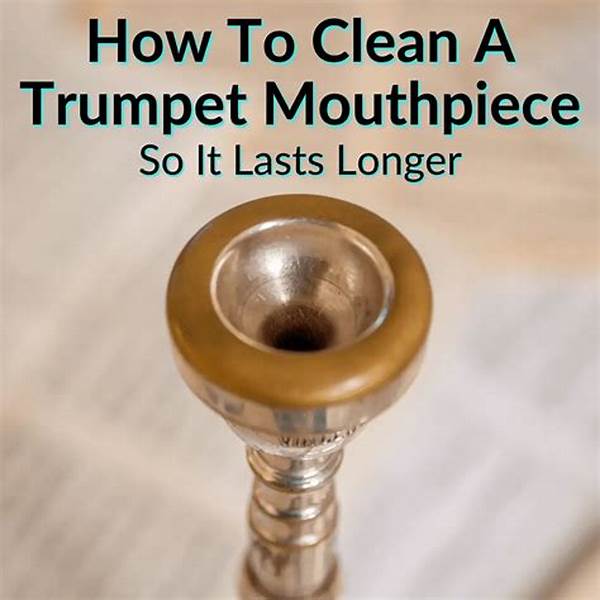In the world of musical instruments, few things are as pivotal to a performer’s success as the trusty trumpet. However, beneath its gleaming bell and intricate valves lies a small yet mighty component crucial to generating those bright and powerful notes—the mouthpiece. Imagine the devastation when, after carefully handling your trumpet, you discover a hint of rust creeping onto your mouthpiece. Yikes!
Read More : Acoustic Instruments That Sound Great When Recorded Live
Trumpet enthusiasts, rejoice! This blog is your ultimate guide to maintaining your trumpet mouthpiece in top-notch condition, ensuring it remains shiny and free from rust. Drawing inspiration from testimonials of seasoned musicians, this article will equip you with the right tools and techniques. Whether you’re rocking out with your band or serenading your local club, rest assured your mouthpiece isn’t secretly rusting away in your gig bag.
How to Properly Maintain Your Trumpet Mouthpiece
The Basics of Mouthpiece Maintenance
Preventing rust and ensuring the longevity of your trumpet mouthpiece involves a simple yet effective routine. Toss aside your fears of elaborate rituals—caring for your mouthpiece is much like brushing your teeth: straightforward. Regular cleaning keeps not only rust at bay but also extends the life of your musical companion.
Cleanliness is Key
Follow these basic steps to keep your mouthpiece clean:
1. Routine Rinse: After each practice session, rinse your mouthpiece with lukewarm water. This removes saliva and any particles, preventing buildup that might lead to rust.
2. Weekly Bath: Give it a “spa day” once a week with a soapy soak in warm water. A soft brush will help eliminate stubborn residues. Avoid hot water as it might tarnish the finish.
3. Dry Thoroughly: Post-wash, ensure your mouthpiece is completely dry. Any moisture left behind is rust’s best friend.
These simple steps promise to keep your mouthpiece shining and performing at its best, an integral part of mastering how to care for a trumpet mouthpiece to prevent rust.
Advanced Tips for Long-Term Care
For those looking to go the extra mile, these advanced techniques can offer additional protection:
1. Apply a Thin Oil Coat: Use a mouthpiece-specific lubricant, lightly applying it and wiping off the excess. This creates a barrier against moisture.
Read More : Musical Instrument With The Most Emotional Impact On Global Audiences
2. Storage Considerations: Store your mouthpiece in a case or pouch, preventing any accidental dents or scratches that can later invite rust.
Consult the Experts
When in doubt, visit your local music shop or consult an experienced fellow trumpeter. They may offer insights or products not widely known but highly effective.
How to Care for a Trumpet Mouthpiece: A Detailed Approach
Maintenance Myths Busted
Step-by-Step Guide
Daily and Weekly Maintenance Checklist
Mastering the Routine
Summary: Ensuring a Rust-Free Performance
Harmonize with Your Mouthpiece
Caring for your trumpet mouthpiece is not just an obligation; it’s an accompaniment to your musical journey. Ensuring your mouthpiece remains rust-free preserves its quality, allowing every note to resonate with clarity.
Why Rust Never Sleeps
Rust prevention is music to any trumpeter’s ears, ensuring both longevity and performance quality. A rusty mouthpiece can not only affect the sound but also aggravate hygiene concerns.
From Maintenance to Mastery
By adopting these strategies, your mouthpiece will remain a reliable partner. The secret? Consistency in care and a sprinkle of extra attention. It’s a perfect blend of love and routine.
Play On, Without Rust
Say goodbye to the rust-powered worries, and hello to seamless playtime. Remember, maintaining your mouthpiece isn’t just about protecting a piece of metal; it’s about safeguarding the music it creates. With these tips, you’re set to make melodious memories, one rust-free note at a time.
